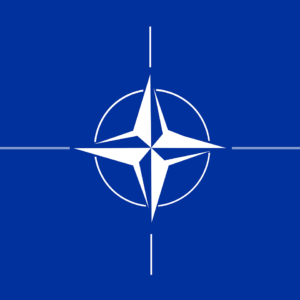North Atlantic Treaty Organization is a military alliance consisting of 30 member countries from the region of the northern Atlantic Ocean. During the Cold war, the twelve founding countries formed NATO in 1949. Further, the organization also has a French name – Organisation du traité de l’Atlantique Nord (OTAN). Hence, it has two official languages – English and French. It has HQ in Brussels in Belgium.
At first, it served as mutual protection from Soviet threats. However, after the fall of the Soviet block, priorities changed. Hence, the goal is to promote democracy and global security.
Moreover, member countries participate in united drills. Thus, in the case of a military emergency, the armies are prepared to cooperate. However, the alliance focuses on diplomatic solutions. To further combat global security issues, NATO partners with 40 other countries. As a result, they guarantee world peace and security.

Further, each member state is obligated to spend 2% of its GDP on defense. Despite this, only very few countries do so. However, the United States of America spends much more. As a whole, NATO is responsible for about 70% of the world’s spending on the military.
An important concept is that an attack on one member state is understood as an attack on all. Thus, if a war broke out between a member and a non-member state, all other members of NATO would stand behind it. However, the only time this clause came into action was after the September 11th attacks.
Structure of NATO
The structure of the alliance divides into two parts. Firstly, the political institution lead by Secretary-General. While no military command role is attributed, the position holds responsibility for coordinating the alliance, leading NATO’s international staff, and chairing the North Atlantic Council. Secondly, the military institution has two leaders. NATO, the largest peacetime military alliance, makes decisions based on a unanimous vote of the member countries. Thus, every single member has to agree.
- Chairman of the NATO Military Committee – advises the North Atlantic Council on military policy and strategy
- Supreme Allied Commander
- Albania
- Belgium
- Bulgaria
- Canada
- Croatia
- Czech Republic
- Denmark
- Estonia
- France
- Germany
- Greece
- Hungary
- Iceland
- Italy
- Latvia
- Lithuania
- Luxembourg
- Montenegro
- Netherlands
- North Macedonia
- Norway
- Poland
- Portugal
- Romania
- Slovakia
- Slovenia
- Spain
- Turkey
- United Kingdom
- United States
